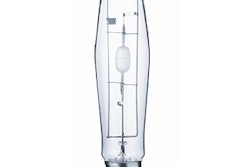SIOUX FALLS, S.D. (AP) — Two federal agencies must approve a proposed uranium mine in the Black Hills before a South Dakota board further considers issuing a permit, its hearing chairman said Tuesday, citing a state law.
The South Dakota Board of Minerals and Environment postponed a second Rapid City permit hearing for Powertech Uranium Corp.'s application for a large-scale mine permit at its Dewey-Burdock mine near Edgemont. The first hearing was held Sept. 23-27. The second was set for Nov. 11-15.
An order issued Tuesday by Rex Hagg, hearing chairman, said the board will not reschedule the state hearing until the Nuclear Regulatory Commission and U.S. Environmental Protection Agency have ruled on the project and established financial surety. The state Water Management Board also must first allocate water rights, he wrote.
Hagg, a Rapid City attorney, wrote in his order that state law allows the minerals board to grant a permit only if the project complies with "all applicable local, state, and federal laws," so the other agencies must act first.
"Powertech may expect that the BME will act timely upon receipt of such decisions," Hagg wrote in his four-page order.
When reached by phone late Tuesday, he said he couldn't comment further because it's a contested case hearing similar to a court trial.
Powertech project manager Mark Hollenbeck, of Edgemont, said he's disappointed in the delay and believes the board could have proceeded. But it does mean that when the minerals hearing resumes, the only main issue will be how the company will reclaim the land.
He said reclamation would be minimal because the mine will use in-situ recovery, which involves pumping water fortified with oxygen and carbon dioxide into underground ore deposits to dissolve the uranium. The water is then pumped back to the surface, and the uranium is extracted and sold to nuclear power plants.
The EPA is in Edgemont this week looking for possible locations for hearings on Powertech's permits before that agency, though the meetings have not yet been scheduled, Hollenbeck said.
The NRC is almost done with its permitting process, though people can still intervene after a permit is issued, he said.
"That will take all of the radiation issues off the table," Hollenbeck said of what has been the most contentious issue.
"Most of the opposition is opposition to nuclear power in general. That came out really loud and clear in the water hearing."
Hollenbeck, a former Edgemont mayor, and other supporters have said the mine would bring jobs to the area and tax revenue to the region and state. Opponents worry about possible harm to the environment.
In his order, Hagg rejected requests to deny or dismiss the mining permit that were filed by Black Hills Wild Horse Sanctuary and Clean Water Alliance but did grant its request to have the board wait until other permits were approved.
Rebecca Leas with Clean Water Alliance said she was stunned to learn of the delay but pleased because state law is very clear that the Board of Minerals and Environment can't act until all other entities do.
"A lot of people missed a lot along the way here," she said. "I think the board realized what legal problems they might be getting into by forging on."
Besides uranium, Powertech also wants to mine for vanadium, a strong metal resistant to shock and corrosion that's used in car parts, jet engines and cutting tools.
Powertech has a corporate office in Vancouver, British Columbia, and operations Colorado, Wyoming and New Mexico, as well as the Dewey Burdock project in South Dakota.






















